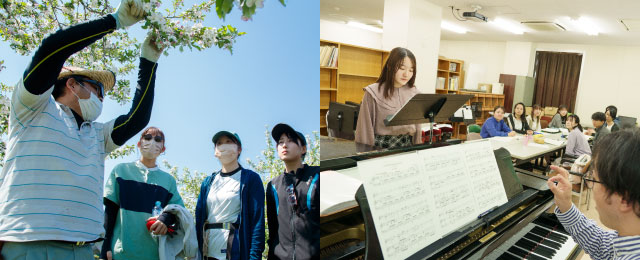Diploma and Curriculum Policies of the Professional School of Education (Professional Degree Program)
Diploma Policy
The Professional School of Education confers a master's degree in teaching (professional degree) on students who have studied the subjects set in the school's curriculum and obtained the prescribed number of credits. The degree assures that the holders possess the qualities and abilities described below and expertise and skills concerning advanced teaching in the profession.
- Practical leadership, including qualities and abilities as a new teacher who can play a major role in developing a new school
- For practicing teachers, solid guidance theory and excellent practical and application skills necessary for core mid-level teachers who can take on leadership roles in local communities and at schools
- Advanced expertise needed for invigorating school education in keeping with the local community's needs and actual situation
Curriculum Policy
At the professional school, researcher-teachers and practical teachers jointly conduct classes and research coinciding with their educational and research philosophies and goals. The curriculum provides learning and research environment that allows students to concentrate on their study with the prospect of becoming an outstanding teacher.
- To develop a high level of proficiency in the teaching profession, the graduate school provides four elective programs with a base of required subjects consisting of common themes in five fields. The four programs are the School Empowerment Program, Learning Development Program, Advanced Curriculum Development Program, and Special Needs Education Program. Students select one of the four programs after entering graduate school so that they can develop their particular field of expertise. Additionally, students engage in practical training at local schools.
- The school offers subjects in such a manner as to allow students to cultivate deep knowledge and a wide perspective. Specifically, in order to create practical teaching capabilities effective hands-on educational methods such as fieldwork, case studies, role-playing, and action research are frequently implemented.
- The school assesses students' achievements of their voluntary and continued study on the themes they independently select.







